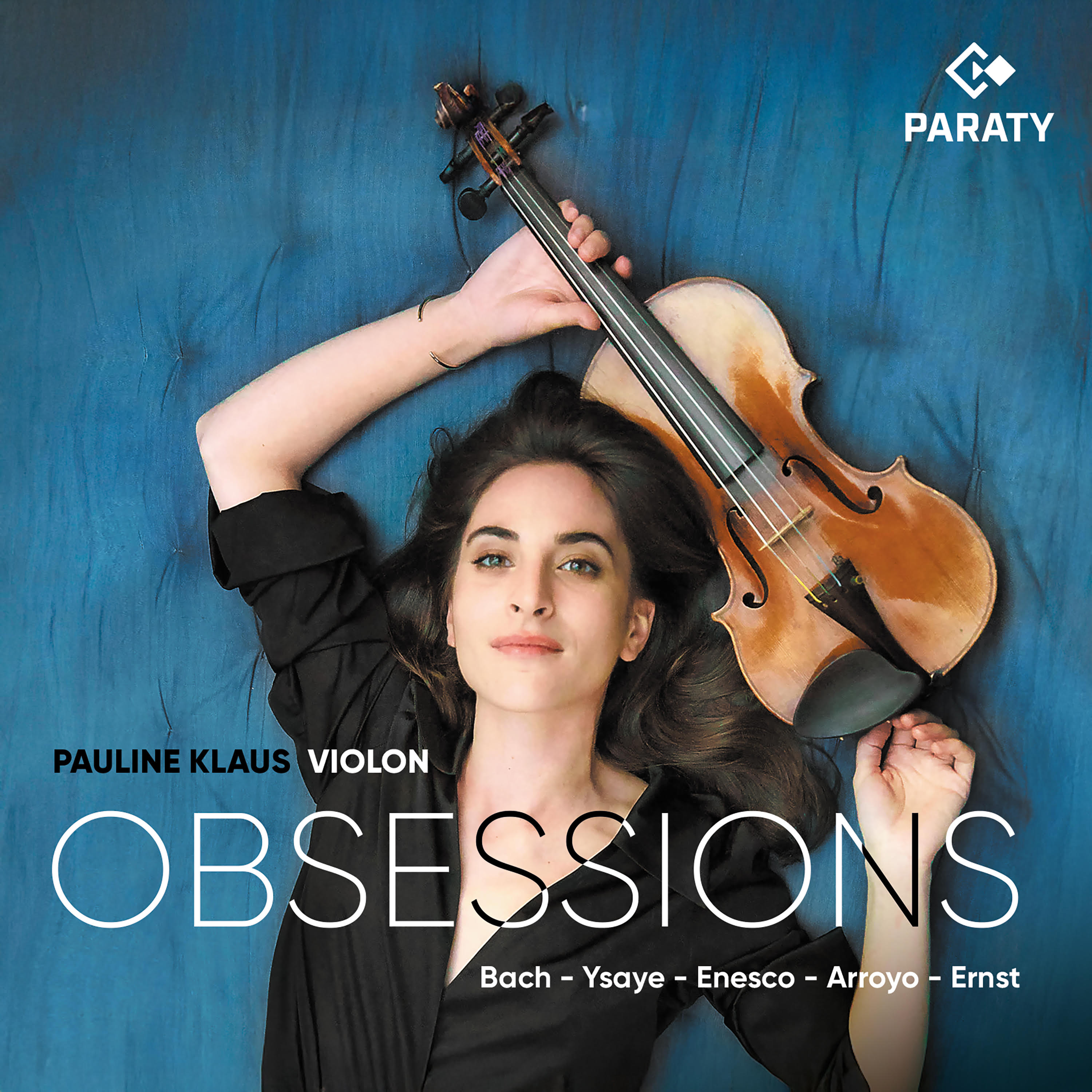
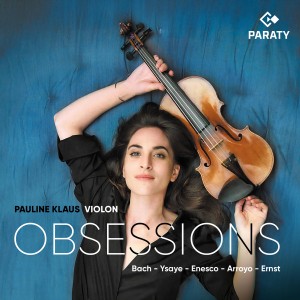


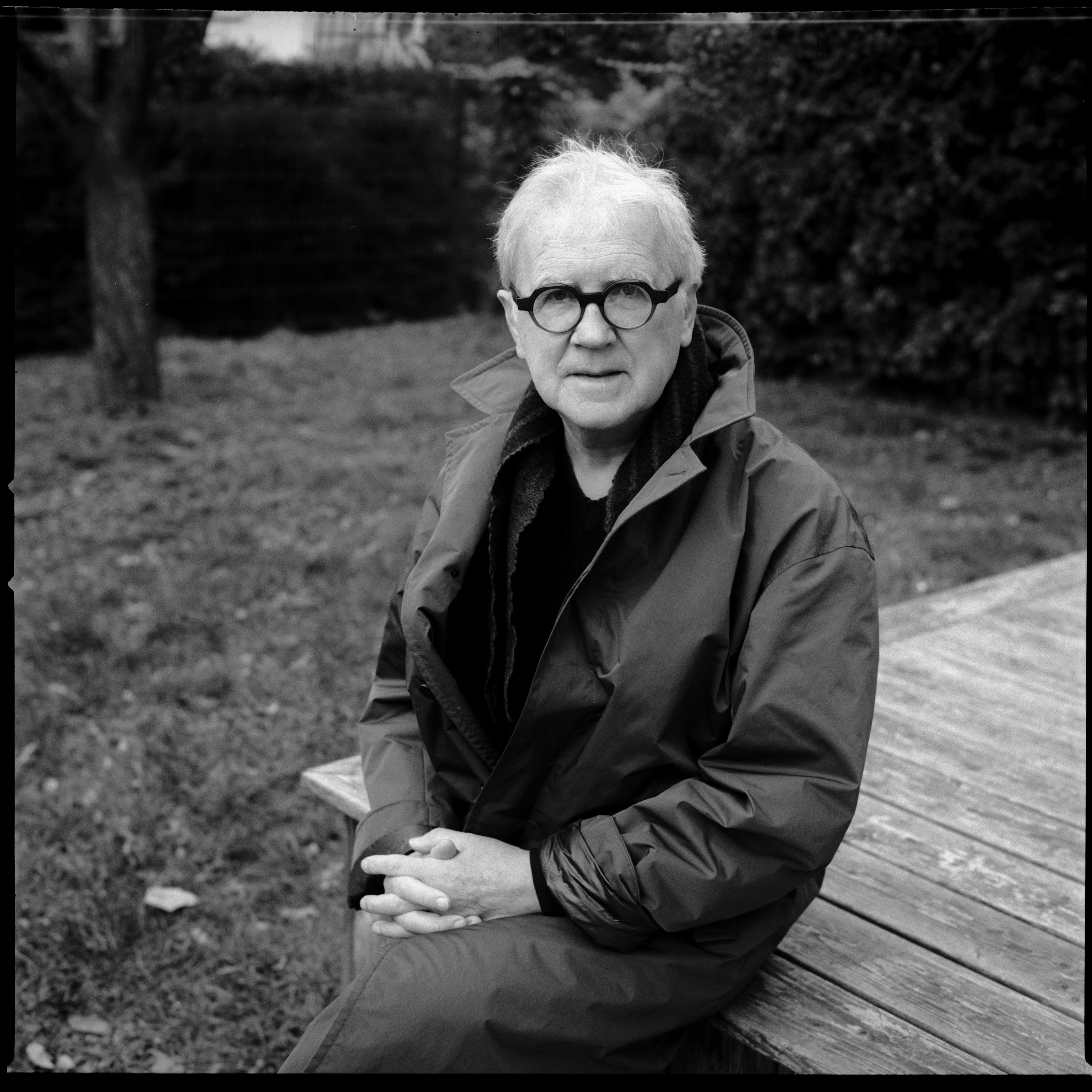
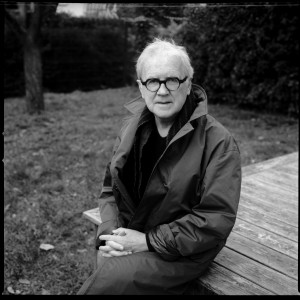
Martin Gester’s artistic personality has been fashioned through his constant acute curiosity and exposure to a great number of neglected masterpieces. That personality infuses his profoundly original approach to mainstream repertoire, whether at the head of his ensemble, as a guest conductor, or a soloist in chamber music.
After studying literature and music at the Conservatory and University of Strasbourg, he founded Le Parlement de Musique in 1990, an inventive, exploratory, flexible, and demanding ensemble at the crossroads of baroque and classical styles, concert and stage, as concerned with discovering new talent as with collaborating with established artists.
Martin Gester has conducted the Parlement de Musique on some forty recordings illustrating a repertoire spanning two centuries of music, from T.L. de Victoria to J. Haydn, and has performed in prestigious venues on four continents. He has also conducted other ensembles and orchestras. Since 1998, he has enjoyed a special collaboration with Arte dei Suonatori, a Polish baroque orchestra. Their recent recording of Handel’s 12 Concerti grossi op. 6 for BIS (Sweden) has been enthusiastically received internationally as one of the “reference versions” in an already prestigious discography. This was followed by G.F. Telemann’s Suites pittoresques and Concerts Polonois (BIS, January 2013) and Venetian Christmas (Christmas in Venice around the psaltery). More recently, Martin Gester recorded Handel’s Concerti grossi Op. 3 (BIS, 2019), this time with the Australian baroque orchestra Van Diemen’s Band, a new partner. He is also invited to conduct productions by the Voces Suaves ensemble— in H. Schütz and M.A. Charpentier.
At the same time, Martin Gester continues his activities as a performer: organist and harpsichordist in recitals or as a concerto soloist, or chamber music partner; on the fortepiano, notably in duo with Aline Zylberajch (they have recorded Mozart’s works for four hands), but also solo: his recording of J.S. Bach’s 6 Partitas for harpsichord (Clavier-Übung 1), released by Ligia, illustrates his exploration of the relationship between the most elaborate music and dance. This was followed by Portraits et Caractères (Jacques Duphly, Mondonville) and Sinfonies au Salon by Johann Schobert, also released by Ligia. With the 18 Leipzig Chorales and Variations Canoniques, freed from his role as director of the Parlement de Musique and armed with his profound experience of Baroque languages, he returned to his remarkable beginnings as a solo organist (Paraty 2025), planning further Clavier-übung II and III. More recently, he has taken a special interest in interpreting the late works of C.P.E. and W.F. Bach and J. Haydn on the clavichord.
A keen interest in working with selected singers has led him to explore the world of lyric singing—cantatas, motets, and lieder—from Monteverdi to Schubert.
Naturally inclined toward teaching and experimentation, Martin Gester founded his own opera workshop, Génération Baroque, a place for discovering, training, and promoting young European professional artists selected through auditions. Its annual productions, often devoted to rare works and entrusted to directors with original approaches, have gained recognition beyond borders in France, Germany, Poland, Belgium, and Italy.
Martin Gester has reached harpsichord and the interpretation of the baroque and classical repertoire to singers and instrumentalists (organ, pianoforte, chamber music) and still leads productions of the baroque orchestra at the Académie Supérieure de Musique and the Conservatoire de Strasbourg. He has been regularly invited to coach singers at the Opéra Studio of the Opéra National du Rhin in the baroque and classical repertoire, and regularly gives masterclasses on several continents.
Martin Gester was made Chevalier des Arts et des Lettres (Knight of Art and Letters) by the French Minister of Culture for his direction of Le Parlement de Musique, and awarded the Order of Merit by the Polish Minister of Culture for his work with Arte dei Suonatori.


Born from the meeting of musicians with international careers, both as soloists and members of major European period-instrument ensembles, Le Stagioni embodies a fresh and thoughtful approach to early music. Gathered around harpsichordist and fortepianist Paolo Zanzu, the musicians share a common desire: to combine artistic rigour with freedom of interpretation, constantly renewing their relationship with historical repertoire. Le Stagioni functions as a flexible-formation ensemble, where vocal music holds a place of honour, and each project is shaped by a collective effort that blends research and intuition.
The ensemble’s repertoire spans European music from the 17th to the 19th century, approached with the flexibility and insight that characterise historically informed performers — yet without ever becoming rigid or formulaic.
From their very first recordings, Le Stagioni received high praise from the specialist press.
Officina Romana. A WonderLab at the Dawn of the 18th Century (Arcana / Outhere Music, 2021) laid the foundations for their inventive and demanding interpretative language.
With La Lucrezia. Händel, Porpora, Vivaldi (La Mùsica, 2022), the ensemble explored the emotional depth of the Baroque with intensity and refinement, placing the voice at the heart of musical expression.
Finally, Un secolo cantante. The Rise of Venetian Opera (Arcana / Outhere Music, 2023) pays tribute to the birth and rise of Venetian opera, capturing a century of artistic transformation with elegance and precision.
As a member of FEVIS, Profedim, and the Arviva – Arts vivants, arts durables network, Le Stagioni embraces a demanding artistic path, one that is deeply rooted in both contemporary and aesthetic concerns.
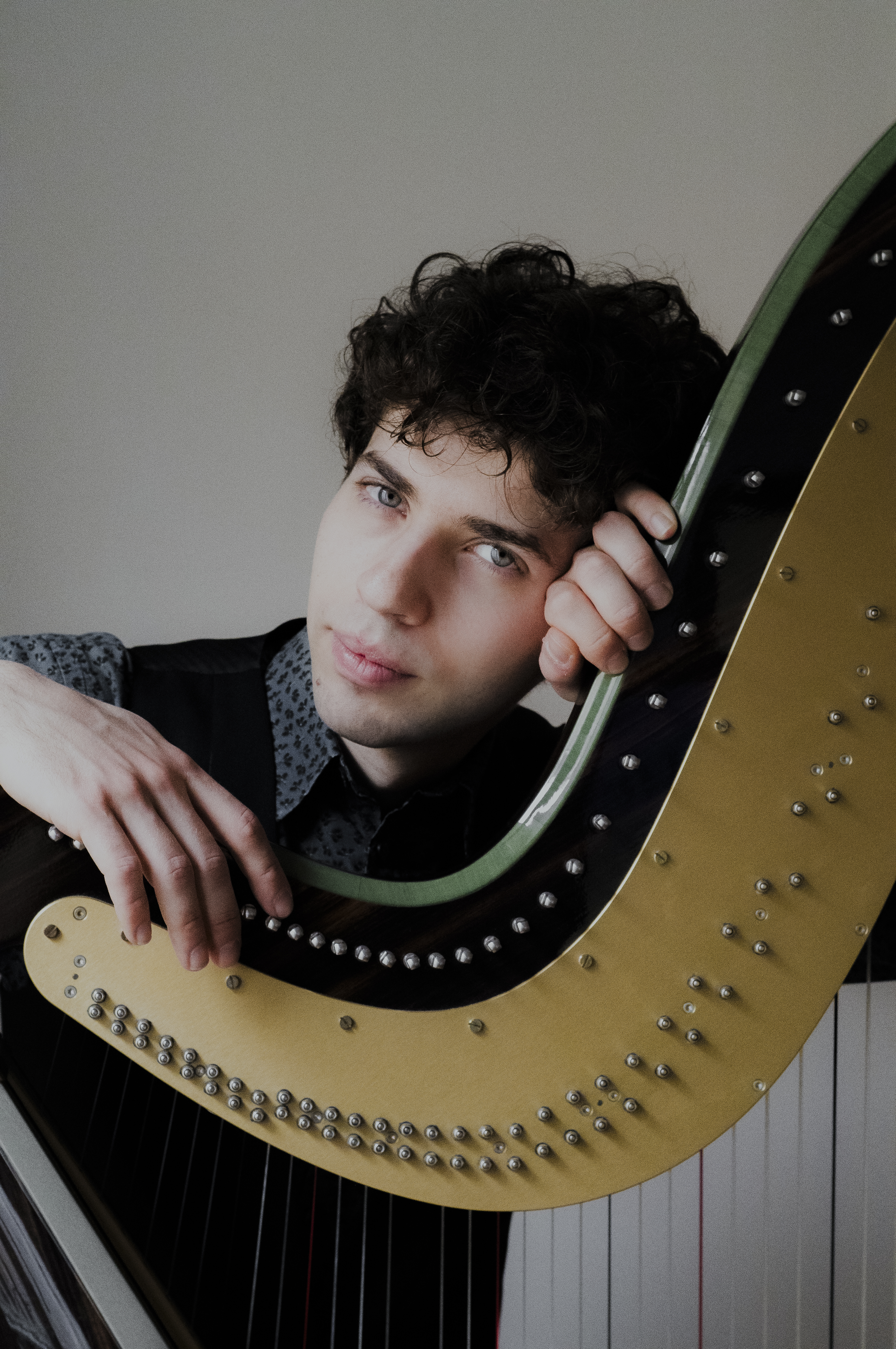
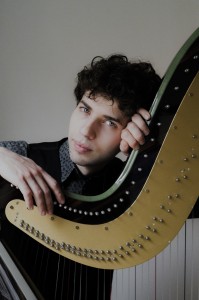
Trained at the Conservatoire National Supérieur de Musique et de Danse de Paris (CNSMDP) with Isabelle Moretti, and taught by Germaine Lorenzini, Marcel Cara (born 1996 in Charleville-Mézières) is part of the finest tradition of the French harp school. His playing, full of depth and colour, immediately catches the eye.
He has made his debut as a soloist in such emblematic venues as the Théâtre du Châtelet, the Fondation Singer-Polignac, the Cité de la Musique in Soissons, the Opéra de Paris, the auditorium of the Musée Guimet, the British Museum in London, Shiodome Hall in Tokyo, Merkin Hall in New York, Qintai Hall in Wuhan, the Sala São Paulo, and the Salon Sully at the Comédie-Française.
He has also been invited to perform at a number of festivals, including the Festival Messiaen au pays de la Meije, Giverny, Ancenis, Les Musicales de Colmar, the Festival de Pâques in Deauville, and has taken part in a tour organised by AJAM to several venues in Alsace.
From orchestra to recital, he explored every facet of his instrument from an early age. Chamber music occupies an essential place in his career, in collaboration with musicians such as Amaury Coeytaux, Philippe Bernold, Gérard Caussé, Christel Lee, Adrien La Marca, Amaury Viduvier, Emmanuel Coppey, Stéphanie Huang and the Hanson Quartet.
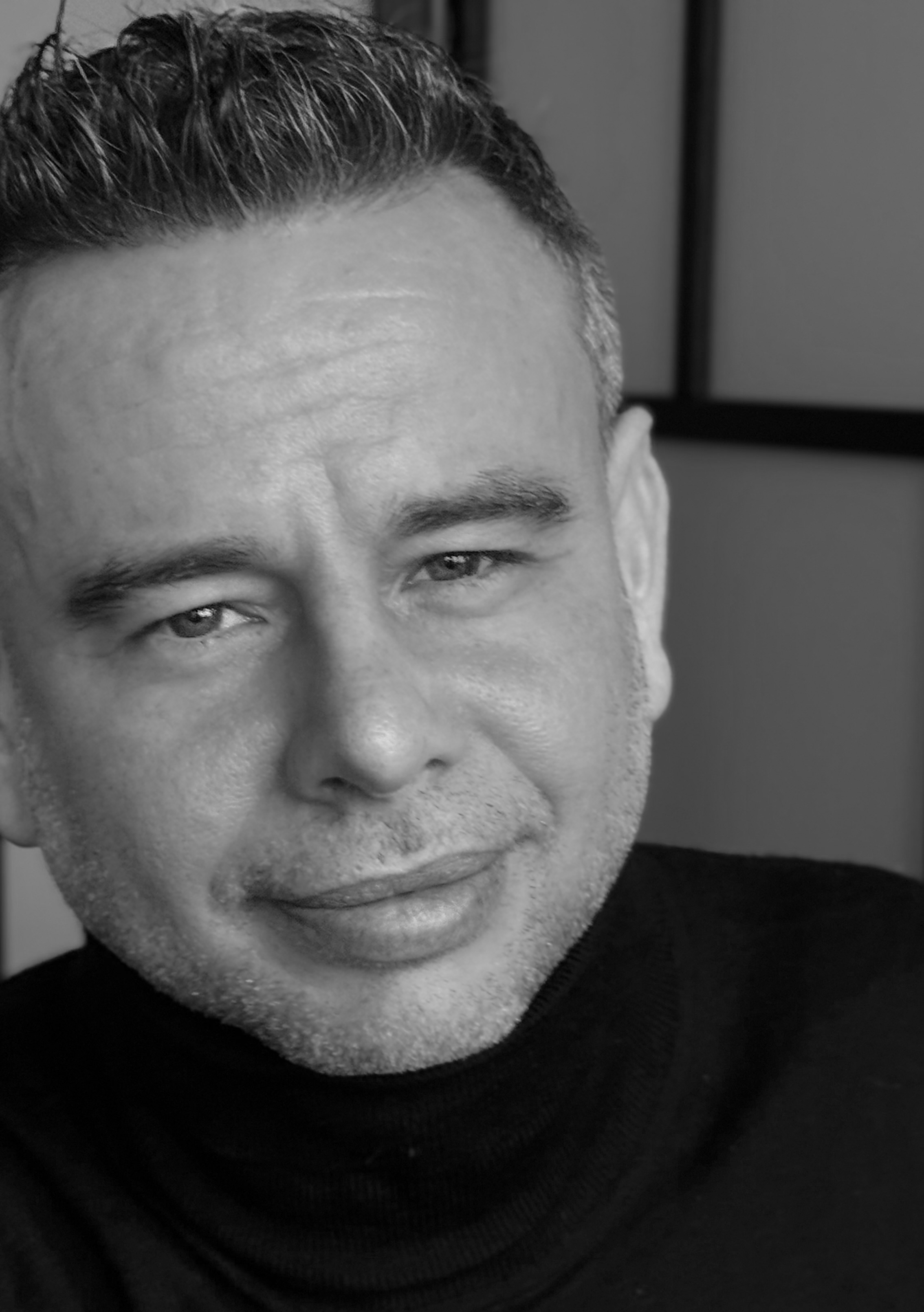
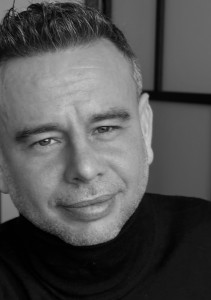 >
>
Alejandro Bonatto is an Argentinian-born composer, pianist, and stage director with an extensive background in music and theatre. He trained in Buenos Aires, where he graduated with honors from the Art Institute of Teatro Colón and earned a Piano Diploma from the National Music Conservatory. Furthering his studies, he obtained a Master’s in Composition from Kingston University in London and was a scholar at the Goethe Institute in Berlin.
His artistic journey spans multiple disciplines, blending composition, opera direction, and theatrical staging. He has directed productions internationally, including Rebecca and Rita at London’s Charing Cross Theatre, The Human Voiceand La Casa de Max at Berlin’s Theater im Delphi, and Monteverdi’s Il Ritorno d’Ulisse in Patria in Buenos Aires.
Alejandro has also collaborated with world-renowned directors such as Graham Vick, working on landmark productions including Tamerlano at the Royal Opera House, London, La Bohème at the Greek National Opera, and Wagner’s Ring Cycle in Lisbon. His work is distinguished by a deep exploration of interdisciplinary storytelling, merging classical and contemporary aesthetics.
His compositions, such as those in his latest album Blued Voices, reflect an evolving soundscape that fuses classical tradition with electronic textures, tracing narratives of memory, nostalgia, and cinematic depth.
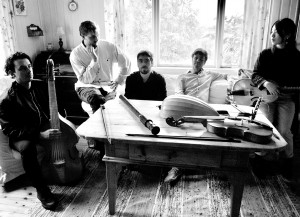
Morgan Marquié Lute
Ondřej Hanuš Recorders
André Costa Violin
Haruna Nakaie Viola da gamba
Lucas Alvarado Viola da gamba
L’ensemble La Quinta Pars
Une des particularités de La Quinta Pars réside dans la diversité culturelle de ses cinq musiciens, aux spécialisations artistiques variées et issus des quatre coins du globe.
En écho aux tableaux de la Renaissance représentant des musiciens concertant au moyen d’un mélange éclectique d’instruments anciens tels que les violes de gambe, flûtes à bec, violons et luths, La Quinta Pars associe avec générosité la diversité sonore et expressive de son instrumentarium. Cette variété de timbres permet de souligner l’indépendance de chaque ligne de la polyphonie et l’individualité de chaque artiste, tout en nourrissant une large texture sonore, ample et unitaire.
À travers une démarche d’interprétation cherchant à valoriser les richesses esthétiques et humaines de l’Europe de la Renaissance, l’ensemble propose une relecture approfondie de certaines des innombrables sources imprimées et manuscrites de cette période nous étant parvenues.
Conscients des limites artistiques d’une transmission musicale par l’écriture, restreintes à un texte brut devant être enrichi par l’interprète en fonction de sa personnalité et de critères techniques informés, les musiciens de La Quinta Pars rejoignent les procédés d’oralité propres à une interprétation collective, spontanée et imparfaite.
Depuis sa création, l’ensemble s’est produit au sein d’institutions lyonnaises telles que la Chapelle de l’Hostel Dieu, l’Auditorium de l’Orchestre National de Lyon, l’Auditorium de L’ENS et l’Auditorium des Archives départementales de Lyon. En région, l’ensemble se produit régulièrement dans le cadre de festivals et d’associations de Musiques Anciennes tels que les festivals de Mars en Baroque, Besançon/Montfaucon, Buëch Durance, La Plaine au Coteau, Orgues et Patrimoine en Maurienne, les Orgues du Pays Roussillonais, Saint-Antoine l’Abbaye… En Europe, l’ensemble s’est produit en République Tchèque dans le cadre du festival Musica ad Confluentem (České Budějovice), du St. Wenceslas Music Festival (Ostrava) et des soirées musicales de la National Gallery (Prague).
En 2021, La Quinta Pars est Lauréate du concours de musique de chambre du festival de Sinfonia en Périgord.
En 2023, L’ensemble est diplômé du Master de Musique de Chambre du CNSMD de Lyon et enregistre son premier CD en collaboration avec Rolf Lislevand (Moose Studio, Norvège).
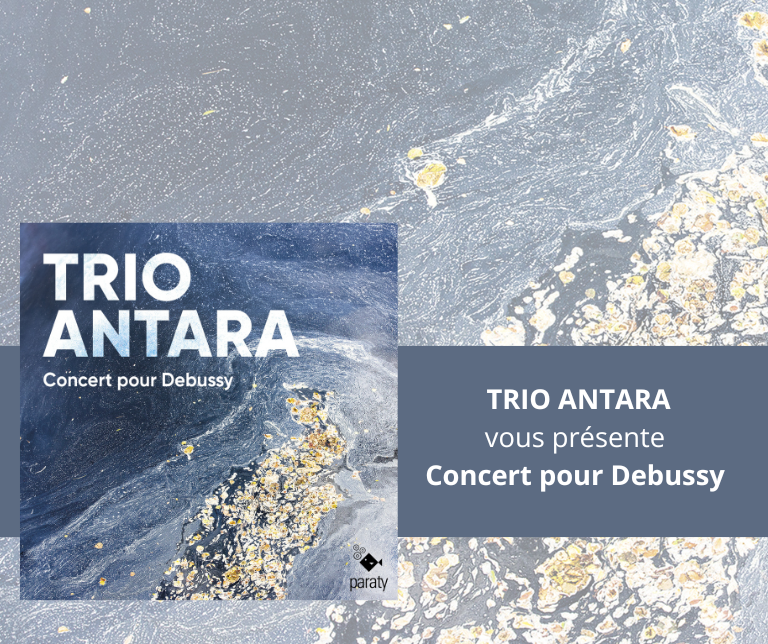
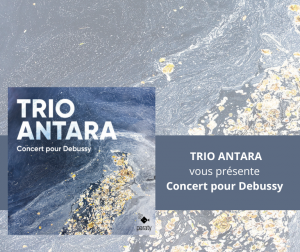
[![]() NEW ALBUM, lancement le 13 septembre] :Plongez dans l’univers musical du Trio Antara avec leur nouvel album, disponible sur toutes vos plateformes préférées. Le deuxième mouvement de Rameau est une pure merveille, magnifiquement adapté par le Trio. Un grand merci à Benoît Sitzia pour ses sublimes transcriptions et compositions.
NEW ALBUM, lancement le 13 septembre] :Plongez dans l’univers musical du Trio Antara avec leur nouvel album, disponible sur toutes vos plateformes préférées. Le deuxième mouvement de Rameau est une pure merveille, magnifiquement adapté par le Trio. Un grand merci à Benoît Sitzia pour ses sublimes transcriptions et compositions.
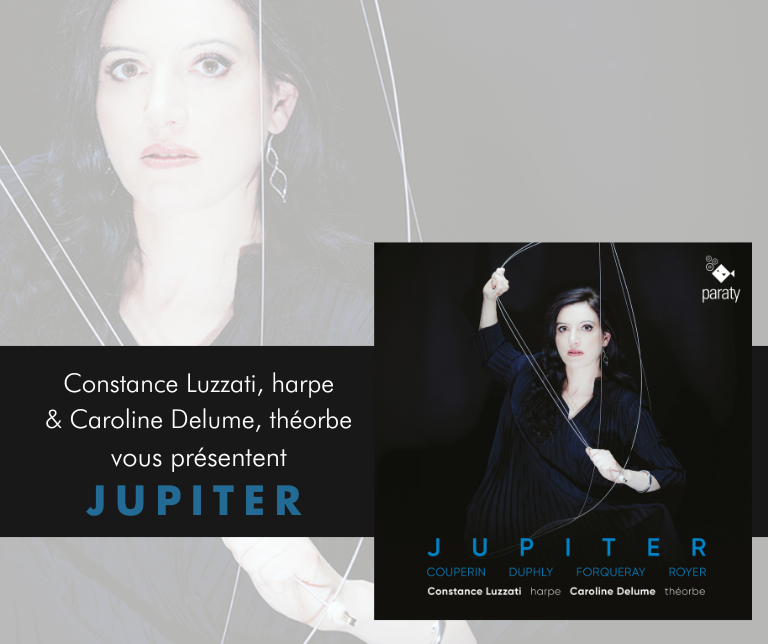
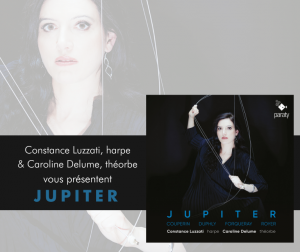
[![]() NEW ALBUM, lancement le 20 septembre] : Nous sommes ravis de vous annoncer la sortie de Jupiter, le tout nouvel album de la talentueuse harpiste Constance Luzzati, le deuxième opus pour Paraty ! Cet album a déjà été salué par un CLIC de Classiquenews. “L’audace du programme est permise par une maîtrise technique splendide où dans un jeu millimétré de transcriptions, la harpe en dialogue avec le théorbe fait chanter chaque morceau dans une vocalité insoupçonnée, inédite, immensément suggestive”
NEW ALBUM, lancement le 20 septembre] : Nous sommes ravis de vous annoncer la sortie de Jupiter, le tout nouvel album de la talentueuse harpiste Constance Luzzati, le deuxième opus pour Paraty ! Cet album a déjà été salué par un CLIC de Classiquenews. “L’audace du programme est permise par une maîtrise technique splendide où dans un jeu millimétré de transcriptions, la harpe en dialogue avec le théorbe fait chanter chaque morceau dans une vocalité insoupçonnée, inédite, immensément suggestive”
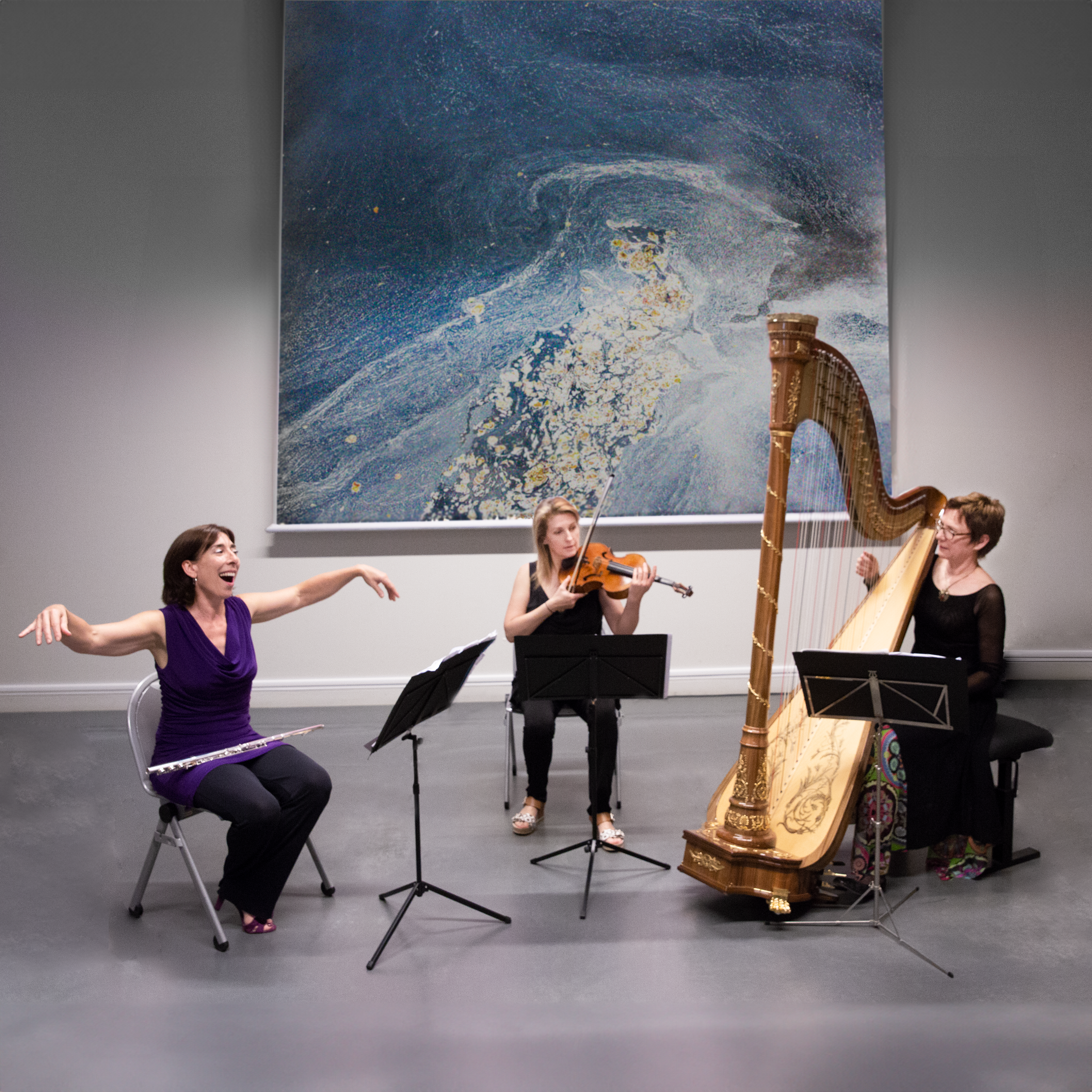
>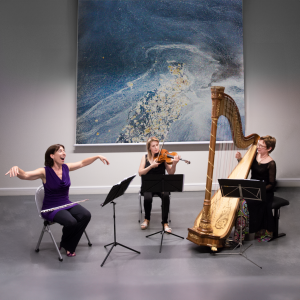
The flute, viola, and harp ensemble first appeared in 1915 through the work of Claude Debussy. Emmanuelle Ophèle, Odile Auboin, and Ghislaine Petit-Volta continue the journey begun by the Second Sonata with the Trio Antara, founded in 2005.
While these three accomplished musicians maintain close relationships with contemporary composers, Antara – with its desire to take the audience on a journey through all musical eras – offers a varied and fascinating repertoire, ranging from Jean-Philippe Rameau to Peter Eötvös, occasionally using transcriptions. Designed to spark curiosity and foster dialogue between the audience and the performers, these programs allow masterpieces from music history to coexist harmoniously.
These unique combinations are not merely ambitious musical challenges; they represent another way of experiencing music, as proposed by Antara. Each Trio concert is thus an invitation to suspend time, to listen, feel, share, and to restore the place of pleasure and poetry.
Recent Comments